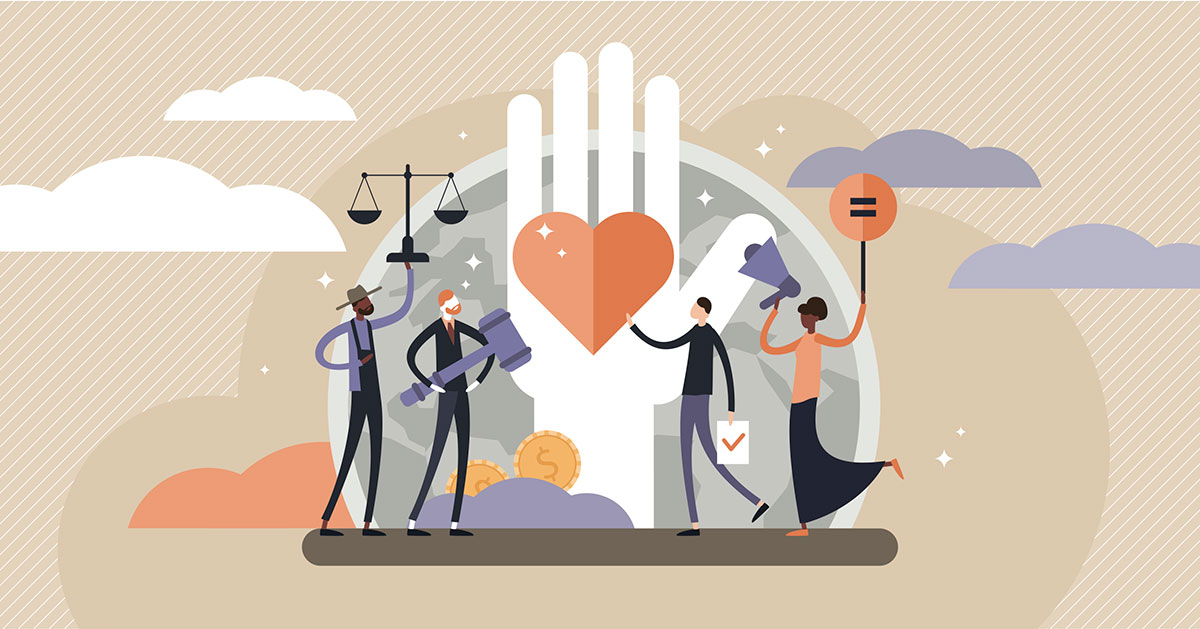What Does Accountability Have To Do With Ibogaine?
Ibogaine is a psychedelic drug that has been used for decades to treat substance use disorders. However, the high price of ibogaine and the lack of regulation among providers have resulted in safety and accountability issues that deserve a deeper conversation. There is no shortage of topics to consider, from provider ethics to industry operations to sustainability and cultural appropriation. We will focus primarily on the provider’s perspective in this article, but you might read further here.
Ibogaine Medical Ethics
In the absence of a regulated industry, ibogaine providers are accountable only to their own ethical interpretation of care. Some providers may be careless with how they source ibogaine. The internet is filled with online merchants who sell various forms of iboga products to anyone willing to buy. Content and purity are inconsistent — and sometimes, the “medicine” is not ibogaine.
Reputable and experienced providers are out there, but in the worst-case scenarios, clients are directly harmed by providers or by ignorant or negligent mistakes. In the absence of oversight, many providers have formed collectives committed to following ethical guidelines. However, the illegal and ambiguous nature of ibogaine treatment means many providers still operate without any accountability.
Before we dive into how ibogaine providers can support medical ethics in this growing industry, let’s look at the current state of accountability in the ibogaine industry from a client’s perspective.
The Ibogaine Industry Has a Long Way to Go
Like many other healthcare spaces, ibogaine treatment centers and clinics experience ongoing issues of harassment, sexual abuse, and discrediting of patient experiences. But while hospitals and medical centers have processes for filing grievances through licensing authorities, the ibogaine industry does not — yet.
After decades of operation, there are many reports of harm that must be mentioned. From cases of sexual abuse and assaults to providers falsely claiming they have “special” protocols that counter the known safety recommendations, there are many examples of both direct and indirect acts of harm and violence against patients.
In terms of patient care, there are cases of clients who are generally mistreated by staff, including providers who are not trained to handle psychiatric conditions or trauma. Within the industry itself, providers may lack accountability in their professional circles, waging character assassinations and spreading rumors about providers on the internet amid competition for clients. Providers or clinics may also overwork “volunteer” apprentices and knowingly (or unknowingly) select unsafe treatment set-ups and protocols — or lack the medical staff and medical equipment necessary to keep clients safe.
For example, ibogaine is well known to prolong the QT interval, meaning it makes the heart take longer to recharge between beats. Knowing the QT will prolong significantly on ibogaine, some ibogaine providers work with stricter parameters and include borderline QTs (420ms-440ms) in their exclusion criteria, but others put their clients at risk.
Many providers don’t own an ECG machine or follow strict best practice guidelines. Juliana Mulligan, now an ibogaine integration specialist, suffered six cardiac arrests during her first ibogaine treatment. She was so enthusiastic about coming out of her experience without opiate withdrawals that she mainly felt grateful. It was only later, when she began to work in the industry and learn what safety guidelines are and how other ibogaine clinics operated, that she realized she had been mistreated — and the provider had been medically reckless. Her experience was completely avoidable if those treating her had adhered to best practices and proper protocols.
As the ibogaine industry becomes regulated and legitimized, the lack of accountability will likely need to be addressed, perhaps through a compassionate process directed toward change and growth. And by learning about these often unknown risks of ibogaine treatment centers, clients too can help advocate for accountability by asking the right questions in this emerging healthcare paradigm.
Ibogaine Center Ghosts Patient
In 2014, Samantha* traveled to Thailand to do ibogaine for her opiate dependency and depression. She spent thousands of dollars and showed up at the “center,” which turned out to be a hotel room. The next day, she was given capsules of ibogaine by a single provider without any preliminary diagnostic tests or monitored period for short-acting opiate stabilization. The last thing she remembers is trying to leave the hotel room at one point due to thirst and not trusting Thailand’s tap water in her hotel room.
Due to the effects of ataxia from the ibogaine, Samantha couldn’t make it out of the room. That is the last thing she remembers, and she never saw or heard from her ibogaine provider again.
She woke up in the hospital days later, unable to remember anything. A family member received a single message from the provider that Samantha had psychological issues she needed to address and they should come to Thailand to pick her up. She describes being groggy, having no memory, and feeling traumatized.
A family member flew to Thailand to find her, and when Samantha returned home, she immediately relapsed on opiates. She was also prescribed more SSRIs which she had worked hard to get off of before ibogaine, and now also faced additional, compounding trauma. Samantha made multiple attempts to leave reviews on the “center’s” website and made efforts to reach out by email, but reviews are deleted, and emails go unanswered.
Unfortunately, these are not uncommon stories in the ibogaine industry. Samantha, seven years later, is still trying to find a way to do ibogaine safely so that she can break free from opiates. However, it’s illegal in her country, and treatment will require considerable travel. Understandably, she has a reasonable amount of trust issues with any provider she comes across.
Psychedelic Providers Might Avoid Accountability
Ibogaine isn’t the only psychedelic industry in operation that we should consider in this discussion. As new drugs are brought into regulation, clinics may still lack the knowledge gained through years of underground experience as a psychedelic provider.
For example, Joan* describes seeking out ketamine therapy for OCD and anxiety. She signed up for ketamine infusions with a nurse, who left her sitting in a clinical room with a chair. She was alone during the infusions and was discharged immediately afterward with no follow-up.
Joan was not screened for psychological contraindications. The clinic did not ask about the last time she took her SSRIs (if they did, they might have determined she was still in withdrawal from them) or asked about her history of panic attacks (and maybe determined she was not a good candidate for ketamine treatment at that time).
Instead, Joan was told that the infusions alone, marked at a high price, would cure her OCD and anxiety. Her first few treatments went well, but she experienced a psychotic break after the third. Being alone with no one to turn to and a toddler to take care of, she ended up in a psychiatric hospital, with doctors prescribing her benzodiazepines. Joan is still concerned she will end up dependent on them.
It’s not hard to imagine a similar scenario happening in a regulated ibogaine industry. Most reputable ibogaine providers stress the need for a supportive staff on-site at all times and the need for integration and/or aftercare. Some of that support and aftercare might even mean long-term childcare support to help parents before, during, and after the experience. Without proper support, it is not hard to imagine that these vulnerable mind states, especially in people who have a history of mental health conditions, might call for psychiatric care. Integration specialists or therapists should be included as an essential component of the ibogaine treatment process.
Ibogaine As a Tool, Not a Cure
Ibogaine is not a “cure” for addiction, though both patients and providers may wish it were. Some people who use drugs say a person has to be motivated to stop using drugs for any treatment model to work. And like many centers that promise miracle cures for addictive behaviors, some ibogaine providers choose to take advantage of desperation and oversell the positive effects of ibogaine without providing enough information regarding risks or drawbacks.
Focusing treatment approaches on abstinence mindsets may hinder the progress of ibogaine research in substance use and mental health communities. Harm reduction principles would recommend that we meet people where they want to be met and focus less on abstinence or on using ibogaine to “force” sobriety from all substances. Though clinics may market this approach, it is not always helpful to the client.
Indeed, some providers have mentioned they have had clients who sought out ibogaine to lower their tolerance and the amount of substances they were using — but had no plans to stop using drugs completely. One follow-up review found that of the people who did end up using drugs again, 56% did not return to their “primary drug of choice” (i.e., oxycodone or cannabis instead of heroin).
With this in mind, it seems that for facilitators to take full accountability, the patient’s needs and desires should be met first — not necessarily the aims and “success” rates of the ibogaine clinic or provider.
Current Efforts Toward Accountability in the Ibogaine Industry
The underlying question that begs for an answer in all of this, why should such a need for grievance reports arise in an industry that should be focused on support and healing? While legal barriers and drug scheduling remain an issue, can the ibogaine community create self-governing networks of safety and accountability? Some providers believe so.
The Root Ibogaine Collective (RIC) was launched during the COVID-19 pandemic. This collective aims to provide inclusive support to people seeking ibogaine treatment and strives to provide safety guidelines and accountability measures in the ibogaine community. RIC recently launched a grievance support process. Grievance reports are submitted by clients who have undergone ibogaine therapy and had a negative experience, usually due to safety issues or a breach of ethics. Grievances can range from abuse, sexual abuse, medical or mental health emergencies that were not handled properly, lack of safety protocols, being scammed for money, racism, or any sort of intolerance, safety, or ethics breaches.
The Global Ibogaine Therapy Alliance used to provide a grievance report and adverse medical report process but have since disbanded, leaving behind only their website and people searching for a process to report grievances.
Recognizing the role that providers play as frontline workers to clients — and that many providers are working through their own traumas — RIC has also launched support meetings for ibogaine providers who are often dealing with stress and burnout due to their profession. This effort to support providers is in alignment with the roots of the medical subculture characteristic of the ibogaine industry.
Accountability Within Ibogaine Research and Therapy
Ibogaine research is ultimately a story about resilience — about the relentless pursuit of health equity in the face of a war on people who use drugs. From CIA studies to biased government agencies refusing to support research outlined by physicians and advocated for by the public, the history of ibogaine research demonstrates the inequities of current drug laws. But what might the future look like?
It is not a stretch to imagine that a pharmaceutical model of ibogaine therapy would include multiple rounds of doses of various sizes, and everything from high price clinics, to low-cost options that lack patient-centered care. A pharmaceutical model could catalyze research on ibogaine and ibogaine analogs for many different mental health disorders, but with a pharmaceutical model comes the reality that some insurance will only cover some treatments for some people. In contrast, others will not have access at all.
Considering that there are currently tens of thousands of people seeking ibogaine therapy outside of clinical trials, it would behoove researchers and developers to work with those who already have experience as providers, patients, and researchers. In this way, underground ibogaine treatment might be legitimized and regulated as drug laws are changed, ensuring maximum safety, accountability, and sound ethics.
There seems to be a unique opportunity here with ibogaine research for citizen science and pharmaceutical research to collaborate — for the benefit of people who are suffering. While a drug development firm may be motivated to develop protocols that benefit their bottom line, a community-led initiative would indeed allow room for personalized protocols prioritizing the patient.
*Names changed for anonymity








